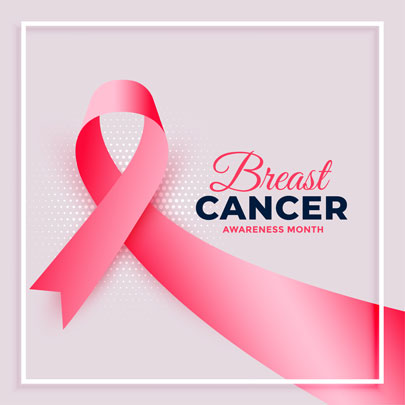Listen to “DROP IN EARLY BREAST CANCER DIAGNOSES TIED TO PANDEMIC” on Spreaker.

https://www.gene.com/
When breast cancer is detected earlier, the disease is easier to treat successfully.1 Patients diagnosed in the early localized stage — meaning the cancer has not spread — have seen 5-year relative survival rates of 99 percent.2
Current research suggests that a reduction in breast cancer screenings at the beginning of the COVID-19 pandemic may have contributed to fewer early-stage and more late-stage breast cancer diagnoses in 2020 (latest statistics available) than in 2019, according to a study published by the journal JAMA Network Open.3
Many people experienced delayed or cancelled mammograms because of the pandemic, and these disruptions may have contributed to later-stage breast cancer diagnoses, when the disease is more difficult to treat.3,4
While mammography screenings rebounded overall by July 2020, the cumulative deficit of missed mammograms may have important public health consequences,5 including the furthering of health disparities.6
Since 2021, breast cancer diagnoses have exceeded lung cancer diagnoses, becoming the most diagnosed cancer worldwide.7,8
In the United States, it is estimated that about 287,850 women in 2022 will be diagnosed with breast cancer.9 Breast cancer is the most commonly diagnosed cancer among women in the U.S., and this year it’s estimated that about 30% of all newly diagnosed cancers in women will be breast cancers.10
For those facing a breast cancer diagnosis, the treatment that follows can be challenging and time consuming. Additionally, the type of breast cancer a patient has — including triple negative, HER2+ or HR+ — impacts the type of treatment they’ll receive.
Dr. Ahmed Elkhanany, a breast cancer expert at the University of Alabama at Birmingham, will discuss the latest news surrounding delays in breast cancer screenings and some of the recent treatment options. A patient share her experience too.
Interview courtesy: Genentech
1 American Cancer Society. American Cancer Society Recommendations for the Early Detection of Breast Cancer. https://www.cancer.org/cancer/breast-cancer/screening-tests-and-early-detection/american-cancer-society-recommendations-for-the-early-detection-of-breast-cancer.html. Accessed June 9, 2022.
2 American Cancer Society. Survival Rates for Breast Cancer. https://www.cancer.org/cancer/breast-cancer/understanding-a-breast-cancer-diagnosis/breast-cancer-survival-rates.html. Accessed June 9, 2022.
3 Zhou J, et al. Comparison of Early- and Late-Stage Breast and Colorectal Cancer Diagnoses During vs Before the COVID-19 Pandemic. JAMA Network Open. https://jamanetwork.com/journals/jamanetworkopen/fullarticle/2789064. Accessed June 1, 2022.
4 Elek P, et al. Effects of lower screening activity during the COVID-19 pandemic on breast cancer patient pathways: Evidence from the age cut-off of organized screening. Health Policy. https://www.sciencedirect.com/science/article/pii/S0168851022001257?via%3Dihub. Accessed June 9, 2022.
5 Sprague B, et al. Changes in Mammography Utilization by Women’s Characteristics during the First 5 Months of the COVID- 19 Pandemic. JNCI. 29 March 2021. https://academic.oup.com/jnci/advance-article/doi/10.1093/jnci/djab045/6184869.
Accessed June 1, 2022.
6 DeGroff A, et al. COVID-19 impact on screening test volume through the National Breast and Cervical Cancer early detection program, January–June 2020, in the United States. Preventive Medicine. 2021. https://www.sciencedirect.com/science/article/pii/S0091743521001432?utm_campaign=11a0a4d458MR_COPY_02&utm_medium=email&utm_source=STAT+Newsletters&utm_term=0_8cab1d7961-11a0a4d458-153427414. Accessed June 1, 2022.
7 World Health Organization. Breast cancer now most common form of cancer: WHO taking action. https://www.who.int/news/item/03-02-2021-breast-cancer-now-most-common-form-of-cancer-who-taking-action. Accessed June 1, 2022.
8 International Agency for Research on Cancer. All-cancers fact-sheet. https://gco.iarc.fr/today/fact-sheets-cancers. Accessed June 10, 2022.
9 National Cancer Institute, The Surveillance, Epidemiology, and End Results (SEER). Cancer Stat Facts: Female Breast Cancer. https://seer.cancer.gov/statfacts/html/breast.html. Accessed June 10, 2022.
10 BreastCancer.org. U.S Breast Cancer Statistics. https://www.breastcancer.org/symptoms/understand_bc/statistics. Accessed June 10, 2022.
#breastcancer #ahmedelkhanany #pandemic #melissa #women #survivalrates #covid #delayed #cancelmammograms #cancelledmammograms #disruptions #genentech #screening #treatment #experience


 GoodNewsLetter: Peace Day is Great!! 9/11, 9/21, But there is a Little Problem.
GoodNewsLetter: Peace Day is Great!! 9/11, 9/21, But there is a Little Problem.